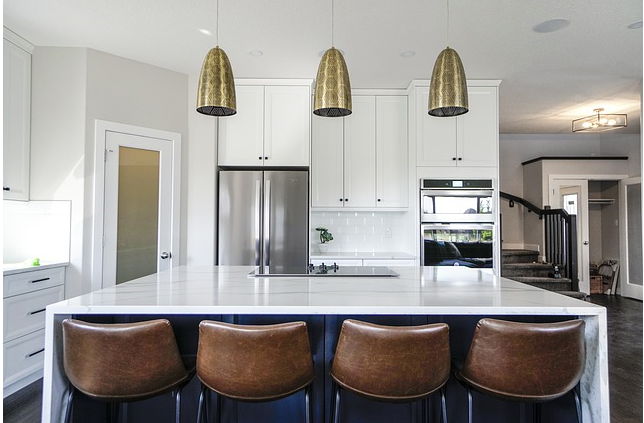There’s nothing more satisfying than a great kitchen design, as the kitchen is one of the most important spaces in a home or rental property. Many hours are spent in the kitchen, be it while preparing for work and school in the morning, sharing dinner with loved ones, or just having some coffee with friends and guests. Given that your kitchen is a focal point in your home, you’d certainly want to amp up its appeal. A key feature to showcase in this space is your kitchen benchtop.
A well-chosen benchtop serves not only as a functional piece but also as a strong design element of your whole kitchen. Hence, choosing the right material and look is a crucial decision for every homeowner.
Top 5 Materials for Your Kitchen Benchtop
Here are five materials you can consider when you’re building or renovating your kitchen benchtop:
Stone
On top of its functionality, stone provides that undeniably luxurious aesthetic to your kitchen. Whether it’s a granite or marble benchtop, using stone gives it a high-end look. What’s great about stone is that no two pieces are exactly alike. Each benchtop is entirely unique. Homeowners could choose between a natural cut stone and an engineered material. Aside from its chic design, a stone is a tough material, making it perfect for the daily bustle in your kitchen.
As with a lot of beautiful things, you pay for quality. With natural stone costing $700 and upwards, it is generally an expensive choice for a benchtop. And you’d want to take extra care and avoid exposing it to anything acidic or staining—citrus fruits, wine, tea, and coffee—as these could compromise the quality of your kitchen benchtop. Periodic sealing will help protect the stone from spills. If you want that stone look without breaking the bank, consider an engineered stone. It’s more affordable and durable, although it won’t be a one-of-a-kind piece like natural cut marble or granite.
Metal
Previously limited only to commercial kitchens, metal benchtops have now become trendy for residential kitchens. For homeowners who want a sleek look without the fuss of maintenance, metal is the best material there is. But this is not to say that it is plain and boring. You could emphasize an industrial aesthetic with metal as your benchtop. A stainless-steel benchtop will run up to about $1,000 per square meter, and a few hundred dollars more for fitting and polishing. Brushed aluminum, copper, and stainless steel are popular choices. Keep in mind, though, that while metal is stain-resistant, it does show streaks or scratches. Therefore, it’s important to find good-quality brushed metal for your kitchen.
Concrete
If you want to give your kitchen that cool, stony vibe but don’t have the budget to go for stone, concrete is another material you could consider. Like marble, concrete is porous and scratch-resistant, and it has a distinct modern aesthetic.
A key advantage of using concrete is that you could mold custom shapes and textures as the concrete is poured on the form. Your style options are limitless. However, concrete is also pretty low in tensile strength, so it can crack or chip if installed by inexperienced hands. The sheer weight of a concrete benchtop will be an added expense to your renovation.
Timber
A timber benchtop is a timeless option for your kitchen. It lends itself well for both modern and rustic styles. Timber benchtops can cost from around $500 up to thousands per square meter, depending on the type of wood and finish. It’s still a relatively cheaper option than stone. Plus, you have an array of timber types, colors, veneer types, and finishes to choose from. With timber, you can construct a benchtop using a single plank, or have several planks “stitched” together. Consider using hardwood over softer varieties, as your kitchen top needs to be strong and durable. And if you’re eco-conscious, you could explore reclaimed timber. Not only are these more durable because of their age, you are essentially giving new life to used wood. It all depends on your design sensibility and what will suit your kitchen space.
Timber needs periodic sealing or oiling to keep it well-maintained. Use a food-grade seal for your kitchen benchtops, and if you want a matte look, sand and oil the surface once in a while. Postformed benchtop (laminated). For the budget-conscious, a postformed benchtop is the most affordable option. At around $150 per square meter, it’s certainly far from the thousand-dollar options out there. But don’t fret about the lack of style; laminates have tremendously improved in terms of style and quality. Your kitchen won’t look dated at all.
Create the perfect look for your kitchen with the right benchtop material and illumination. Enhancing this space will increase your property value and make daily meals and gatherings that much more satisfying. Choose a material will fit your routine and design requirements and consult your contractor before making a decision.
By Nicole






